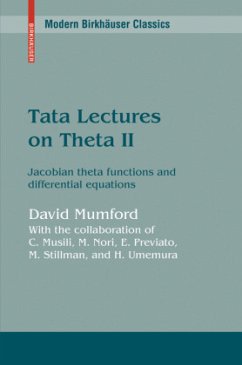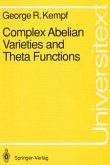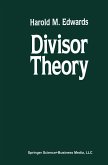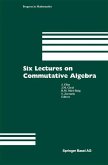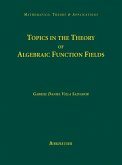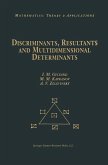The second in a series of three volumes surveying the theory of theta functions, this volume gives emphasis to the special properties of the theta functions associated with compact Riemann surfaces and how they lead to solutions of the Korteweg-de-Vries equations as well as other non-linear differential equations of mathematical physics.
This book presents an explicit elementary construction of hyperelliptic Jacobian varieties and is a self-contained introduction to the theory of the Jacobians. It also ties together nineteenth-century discoveries due to Jacobi, Neumann, and Frobenius with recent discoveries of Gelfand, McKean, Moser, John Fay, and others.
A definitive body of information and research on the subject of theta functions, this volume will be a useful addition to individual and mathematics research libraries.
Hinweis: Dieser Artikel kann nur an eine deutsche Lieferadresse ausgeliefert werden.
This book presents an explicit elementary construction of hyperelliptic Jacobian varieties and is a self-contained introduction to the theory of the Jacobians. It also ties together nineteenth-century discoveries due to Jacobi, Neumann, and Frobenius with recent discoveries of Gelfand, McKean, Moser, John Fay, and others.
A definitive body of information and research on the subject of theta functions, this volume will be a useful addition to individual and mathematics research libraries.
Hinweis: Dieser Artikel kann nur an eine deutsche Lieferadresse ausgeliefert werden.

